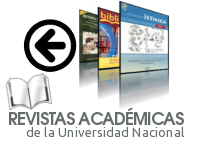Reflections on Playful Practices in Human Rights Education: Cooperative Play
DOI:
https://doi.org/10.15359/udre.9-1.10Keywords:
education on human rights, teaching, students, play, gamesAbstract
This work focuses on human rights education as a space for pedagogical innovation at the university. It presents part of the experiences lived in the course “Recreational Spaces for human rights education,” offered by IDELA to the university community. This course aims to generate a reflection on the importance of playing in human rights education in the university context. A descriptive approach and an analysis of some of the lived experiences were implemented. It is concluded that human rights education should be a process centered on innovative, experiential, and playful practices that go beyond traditional and magisterial proposals, in which students can create, participate, and learn values through participatory and socio-affective spaces in which human rights are recognized as practices based on a more supportive and respectful way of life.
References
Asamblea General de Naciones Unidas (2014). Plan de acción para la tercera etapa (2015-2019) del Programa Mundial para la Educación en Derechos Humanos. Informe de la Oficina del Alto Comisionado de las Naciones Unidas para los Derechos Humanos. Recuperado de https://documents-dds-ny.un.org/doc/UNDOC/GEN/G14/099/58/PDF/G1409958.pdf?OpenElement
Vallejo, S. (2014). La pedagogía de la alteridad: un modo de habitar y comprender la experiencia educativa del presente. Revista Fundación Universitaria Luis Amigó, 1(2), 114-125. Recuperado de funlam.edu.co/revistas/index.php/RFunlam/article/download/1333/1210
Unesco, OHCHR (2001). Declaración de México sobre educación en derechos humanos en América Latina y el Caribe. Conferencia Regional sobre Educación en Derechos Humanos en América Latina y el Caribe. Recuperado de https://www.iidh.ed.cr/multic/UserFiles/Biblioteca/IIDH/2_2010/AspecTeoMetodologico/Material_Educativo/Declaracion-Mexico.htm



